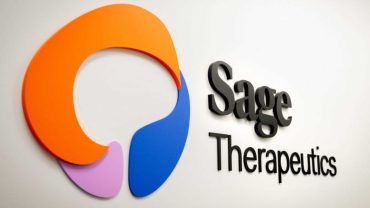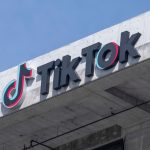
- HealthTech
Supernus Acquires Sage Therapeutics for $795 Million Drug Deal
6 minute read

Biopharmaceutical merger expands Supernus drug portfolio with Zurzuvae depression treatment and neuroscience pipeline assets
Three Key Facts
- $795 million acquisition deal – Supernus Pharmaceuticals acquires Sage Therapeutics for $8.50 per share cash plus up to $3.50 per share in milestone payments tied to Zurzuvae sales performance through 2030.
- 87% premium over recent trading – Sage shares surge 36% in premarket trading to $9.17 following the announcement, significantly above the $6.70 closing price but still well below the stock’s 2021 peak of over $90.
- Strategic CNS portfolio expansion – The deal gives Supernus control of postpartum depression drug Zurzuvae, which generated $36.1 million in 2024 revenue, plus pipeline candidate dalzanemdor for neurodegenerative disorders.
Introduction
Supernus Pharmaceuticals strikes a major acquisition deal worth up to $795 million to purchase Sage Therapeutics, marking a significant consolidation move in the neuropsychiatry sector. The Maryland-based biopharma company offers $8.50 per share in cash plus contingent payments that could reach $12 per share total.
This transaction represents a strategic pivot for Cambridge-based Sage, which rejected a lower $469 million bid from Biogen earlier this year. The deal positions Supernus to expand its central nervous system portfolio while providing Sage shareholders with immediate value after years of clinical setbacks and operational restructuring.
Key Developments
The acquisition centers on Sage’s flagship asset Zurzuvae, the first oral treatment for postpartum depression approved by the FDA in August 2023. Supernus structures the deal with an $8.50 per share cash offer at closing, plus milestone-based payments tied to Zurzuvae’s commercial performance through 2030.
Shareholders receive additional payments of $1 per share each when Zurzuvae reaches annual sales of $250 million by 2027, $300 million by 2028, and $375 million by 2030. An extra $0.50 per share becomes available if the drug gains approval and launches commercially in Japan for major depressive disorder.
The deal includes a $22 million termination fee and requires regulatory approvals plus a majority shareholder tender. Supernus funds the acquisition entirely from existing cash reserves, avoiding dilutive equity raises or external financing needs.
Market Impact
Sage shares jump 36% in premarket trading to $9.17, reflecting investor approval of the premium valuation. The stock had declined 41% over the past year and trades far below its 2021 peak above $90 per share.
Supernus expects the transaction to become significantly accretive to earnings starting in 2026. The company will receive 50% of net U.S. revenue that collaboration partner Biogen records for Zurzuvae, creating an immediate revenue stream from the partnership.
RBC Capital Markets analyst Brian Abrahams calls the offer “fair” given the considerable time required for Sage to achieve standalone profitability. Stifel analysts describe the outcome as “unremarkable” for a company once considered among the hottest central nervous system stories, though they acknowledge it provides a “good end” for shareholders.
Strategic Insights
The acquisition reflects broader consolidation trends in biotechnology, where companies with commercial-stage assets command premium valuations. Supernus gains immediate access to a differentiated neuropsychiatry franchise while diversifying beyond its existing portfolio.
Sage’s strategic reorganization, including a 40% workforce reduction and $240 million in annual cost savings, positioned the company as an attractive acquisition target. This restructuring mirrors industry-wide efforts by biotechs to extend cash runways and streamline operations.
The deal underscores the value premium attached to central nervous system assets, particularly those addressing underserved patient populations. Postpartum depression affects up to 15% of new mothers, representing a substantial market opportunity for specialized treatments like Zurzuvae.
Expert Opinions and Data
“This transaction follows a comprehensive strategic review by our Board of Directors, and I am confident this deal maximizes value for shareholders,” states Sage CEO Barry Greene. He emphasizes the company’s commitment to advancing brain health while transitioning into the Supernus partnership.
Supernus President and CEO Jack Khattar highlights the strategic rationale: “This acquisition represents a major step in bolstering our future growth. It augments our growth profile by adding a significant fourth growth product to our portfolio and further diversifies our sources of future growth.”
Zurzuvae generated $36.1 million in 2024 revenue and contributed $13.8 million in the first quarter alone, according to STAT News. The drug’s limited label approval initially disappointed investors who expected broader major depressive disorder indications, but commercial traction continues building in the postpartum depression market.
Sage’s pipeline includes dalzanemdor, a first-in-class NMDA receptor modulator currently in Phase 2 trials for Huntington’s and Alzheimer’s diseases. This asset provides Supernus with additional development opportunities in neurodegenerative disorders, though previous Sage programs in epilepsy, tremors, and Parkinson’s disease encountered clinical failures.
Conclusion
The Supernus-Sage merger creates a stronger neuropsychiatry platform while providing Sage shareholders with immediate liquidity after years of operational challenges. Both companies’ boards approve the transaction, with completion expected in the third quarter pending regulatory clearance and shareholder acceptance.
The deal establishes Supernus as a more diversified CNS-focused company with proven commercial execution capabilities. For the broader biotech sector, this acquisition demonstrates continued appetite for differentiated neuropsychiatry assets and validates the strategic value of focused therapeutic portfolios in underserved disease areas.








